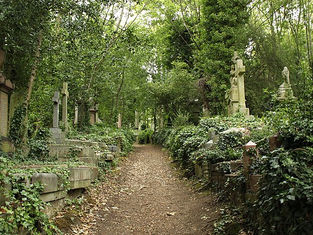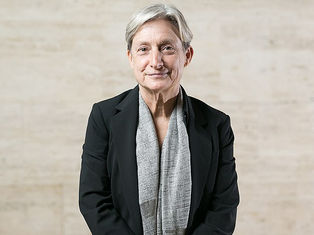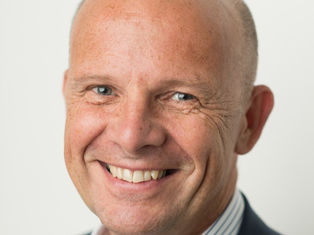top of page
Articles


HORTENSIUS, or: On the Cultivation of Subjects in Noman’s Garden
Then from out the cave the mighty Polyphemus answered them: ‘My friends, it is Noman that is slaying me by guile and not by force’. And they made answer and addressed him with winged words: ‘If, then, no man does violence to thee in thy loneliness, sickness which comes from great Zeus thou mayest in no wise escape’. —Homer , The Odyssey, Book IX […] for when man was first placed in the Garden of Eden, he was put there ut operaretur eum, that he might cultivate it; which shows

Jojo Amoah
36 min read


The Ministerial Code: a scarecrow of the law?
We must not make a scarecrow of the law, Setting it up to fear the birds of prey, And let it keep one shape, till custom make it Their...

Shulamit Aberbach, Mishcon de Reya
11 min read


Karl Heinz Bohrer’s ‘A Little Pleasure in Decline. Essays on Britain’
Karl Heinz Bohrer’s A Little Pleasure in Decline. Essays on Britain. [1] My friend Karl Heinz Bohrer died on 4 August 2021. He was seen...

Giles MacDonogh
14 min read


Can Modern Appropriation Art be Reconciled with Copyright Law? A Closer Look at Cariou v. Prince
Artists have drawn ideas, thoughts, and concepts from the works of others for centuries. However, copyright infringement issues frequently arise in the contemporary world. The case discussed in this piece concerns contemporary artworks from the ‘Canal Zone’ series by Richard Prince. Most of the works had photographs by Patrick Cariou incorporated in them, which were previously published in Cariou’s Yes Rasta book. Following an analysis of appropriation art history, postmode

Marysia Opadczuk
15 min read


The Next Civil War: In Conversation with Stephen Marche
Stephen Marche is a novelist, essayist and cultural commentator. He is the author of half a dozen books and has written opinion pieces...

Charlotte Friesen
6 min read


Should Terrorism be Regarded as an International Crime? An Examination of the Theoretical Benefits and the Practical Reality
Introduction An international crime is ‘an act universally recognised as criminal, which is considered a grave matter of international concern and for some valid reason cannot be left within the exclusive jurisdiction of the State that would have control over it under ordinary circumstances’.[1] This essay will firstly examine whether proposed definitions of terrorism as a crime under customary international law should be accepted, and then discuss whether terrorism should fa

Eoin Campbell
13 min read


Iconoplastic: An Institutional Reform Agenda
The last few months, in particular the furore over Partygate,[1] have scarred the reputation of many of Britain’s most vital...

Polly Mackenzie
14 min read


Power and Performativity: In Conversation with Professor Judith Butler
A front-runner in the fight for equality and justice, Professor Judith Butler is one of the most influential philosophers of the past...

Teresa Turkheimer
26 min read


‘We’re All Mad As Hell Now’—How ‘Network’ (1976) Captures the Anti-Politics of Social Media
‘I’m mad as hell and I’m not going to take this anymore!’ is a phrase that has been raptured up into the popular English lexicon, cited, quoted, parodied, remixed, and dissolved into an ironic confirmation of the satire that produced it. It was the most iconic line from Network (1976), a now-classic film that told the dark tale of a fictional American network news anchor, Howard Beale (played by posthumous Academy Award-winner Peter Finch), whose blooming madness was exploite

Katherine Cross
21 min read


Foreword to CJLPA 2 by The Rt Hon Lady Arden, Former Justice of the UK Supreme Court
I am honoured to be asked to write a short Foreword to this Issue of The Cambridge Journal of Law, Politics, and Art . I was an...

The Rt Hon Lady Arden
3 min read


Dublin and Urban Development: In Conversation with Dr. Alison Gilliland
Dr. Alison Gilliland was Dublin’s 353rd Lord Mayor in 2021/2022. She is currently a Dublin City Councillor for the Labour Party,...

Kylie Quinn
14 min read


The Glitz and Glamour of the Metaverse
At the heart of the metaverse stands the vision of an immersive Internet—a gigantic, unified, persistent, and shared realm.[1] To the...

Danielle Jump
14 min read


‘Private Vices, Publick Benefits’ in Permissive Democracies: Mandeville’s The Fable of the Bees in the Context of Transgressions by Western Political Classes
Introduction The work of many 17th-18th century thinkers on politics and society continues to shape modern discourse, with notable contributions including Thomas Hobbes’s Leviathan (1651), John Locke’s A Letter Concerning Toleration (1689), and Jean-Jacques Rousseau’s Discourse on the Arts and Sciences (1750). The renown enjoyed by a small number of thinkers should not, however, divert us from more obscure but equally significant works from the period. The Anglo-Dutch crit

Daniel Morgan
14 min read


Warfare’s Silent Victim: International Humanitarian Law and the Protection of the Natural Environment during Armed Conflict
I: Introduction Armed conflict changes everything.[1] It is the ultimate human-induced crisis that has devastating consequences for the...

Lydia Millar
34 min read


Educational Rights for Baha’i in Iran: In Conversation with Iqan Shahidi
Iqan Shahidi is a PhD candidate in Intellectual History at the University of Cambridge. He completed his undergraduate studies in...

Casper Alexander Sanderson
16 min read


The Problem of Sieving Related Party Transactions in India and the UK
I. Introduction The rise of family-owned businesses has resulted in the clustering of several companies and their subsidiaries under the...

Varda Saxena
20 min read


Foreword to CJLPA 2 by Martin Wilson, Honorary Editor and Chief General Counsel at Phillips
As I read the insightful, entertaining, scholarly, and diverse articles in this issue of The Cambridge Journal of Law, Politics, and Art...

Martin Wilson
4 min read


Heraldic Politics: Why Flags Still Matter
The Estonian flag is a blue-black-white tricolour. Or at least it should be. As a foreign correspondent in 1990, I was puzzled to see...

Edward Lucas
5 min read
bottom of page

